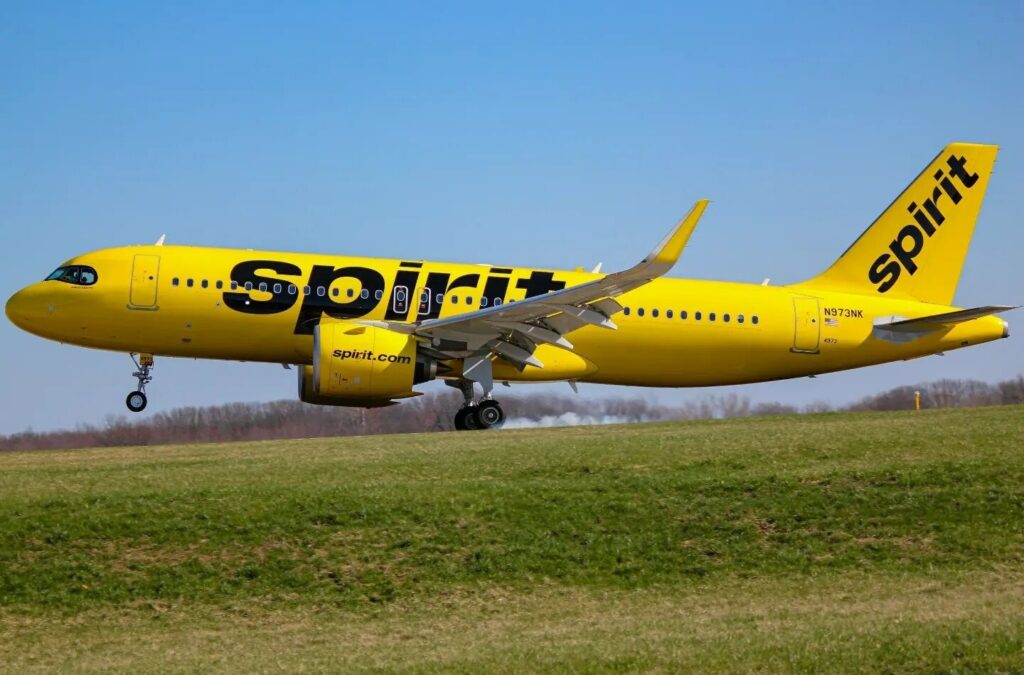Advertiser & Editorial Disclosure: The Bulkhead Seat earns an affiliate commission for anyone approved through the links below. This compensation may impact how and where links appear on this site. We work to provide the best publicly available offers to our readers. We frequently update them, but this site does not include all available offers. Opinions, reviews, analyses & recommendations are the author’s alone, and have not been reviewed, endorsed, or approved by any of these entities.
JetBlue announced its intention to buy Spirit Airlines last year. It’s been challenged by the Department of Justice (DOJ) and a separate civil suit, as well as competing bids from Frontier Airlines. Its latest headache came when lawyers did not properly redact a document that stated that it planned to raise fares on Spirit routes by as much as 40% post acquisition.

JetBlue provided documents to the plaintiff in its consumer lawsuit that alleges the carrier is conspiring against passengers to raise prices after the merger. Among the files was one internal document that was supposed to have sections blacked out. A technical error caused this text to be visible and there were some damning tidbits found inside. These include:
- The acquisition was “modelled for price increases and capacity reductions,” and plans to remove an average of 24 seats “from every one of Spirit’s roughly 200 planes.”
- “JetBlue acknowledges that Spirit’s exit from a route results in market-wide price increases of all other airlines serving that route by 30%.”
- “JetBlue plans to increase fares on aircraft it acquires from Spirit by at least 24%.” This “is a conservative estimate, and that fare increases may be as high as 40%.”
JetBlue still uses an old argument known as the “JetBlue Effect.” This model says that as the carrier grows, it drives down fares and becomes more competitive against American Airlines, Delta Air Lines, Southwest Airlines, and United Airlines (the “Big Four” in the US). Those four airlines currently control around 80% of US air travel marketshare.

Opposing counsel states the “defendants’ own admissions provide an astounding quality of direct evidence that the merger not only threatens anticompetitive harm, it will almost assuredly result in it. Higher prices, reduced output, the elimination of choice in a vibrant rival, and the diminution of service quality, among other harms” will come as a result of the sale.
JetBlue provided a statement to several news outlets. It reads:
Private plaintiffs’ counsel failed to properly redact certain information which, taken out of context, creates a completely inaccurate picture of the facts. We are confident that our merger with Spirit will give a much-needed boost to airline competition in the U.S. and result in more low fares and higher-quality service for customers.”
While JetBlue’s attorneys’ blunder has made its case more difficult, I don’t think this is over. There are still compelling arguments in favor of the acquisition and time will tell how hard the DOJ wants to press its arguments against the merger when it eventually is heard.
Anthony’s Take: It’s been many years since I have flown JetBlue. Selfishly, I hope that the merger does go through as I’d like to see Spirit’s Big Front Seats make their way onto JetBlue planes (rebranded as Mint maybe). I’ll be following this one as it progresses.
User Generated Content Disclosure: The Bulkhead Seat encourages constructive discussions, comments, and questions. Responses are not provided by or commissioned by any bank advertisers. These responses have not been reviewed, approved, or endorsed by the bank advertiser. It is not the responsibility of the bank advertiser to respond to comments.
Advertiser & Editorial Disclosure: The Bulkhead Seat earns an affiliate commission for anyone approved through the links above This compensation may impact how and where links appear on this site. We work to provide the best publicly available offers to our readers. We frequently update them, but this site does not include all available offers. Opinions, reviews, analyses & recommendations are the author’s alone, and have not been reviewed, endorsed, or approved by any of these entities.
